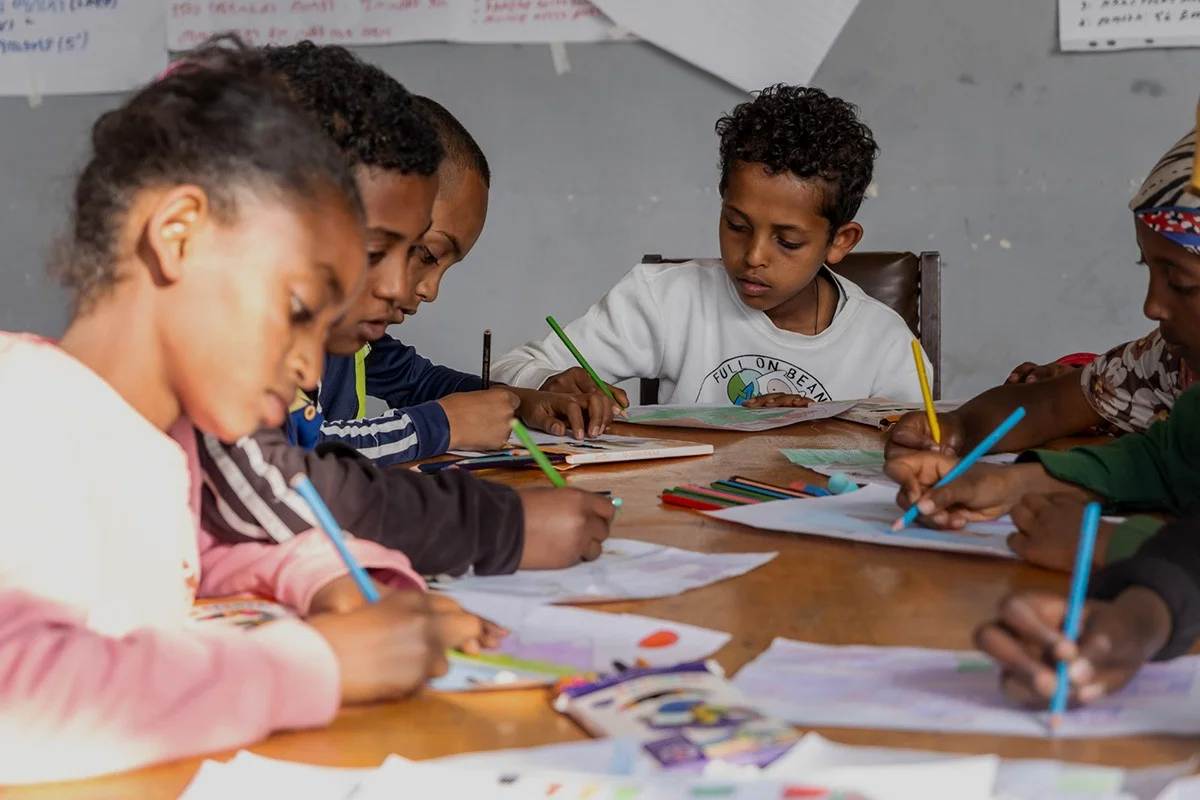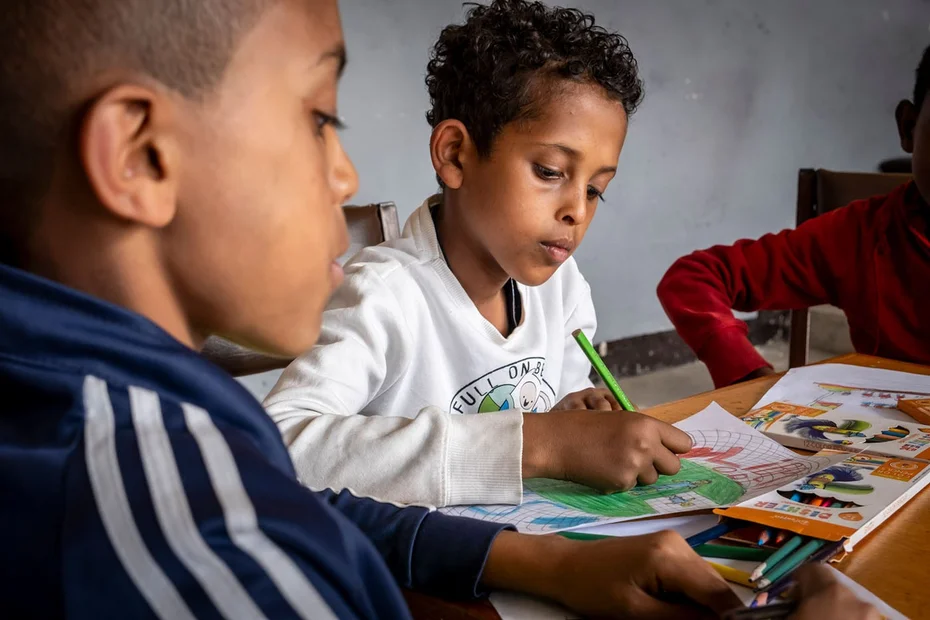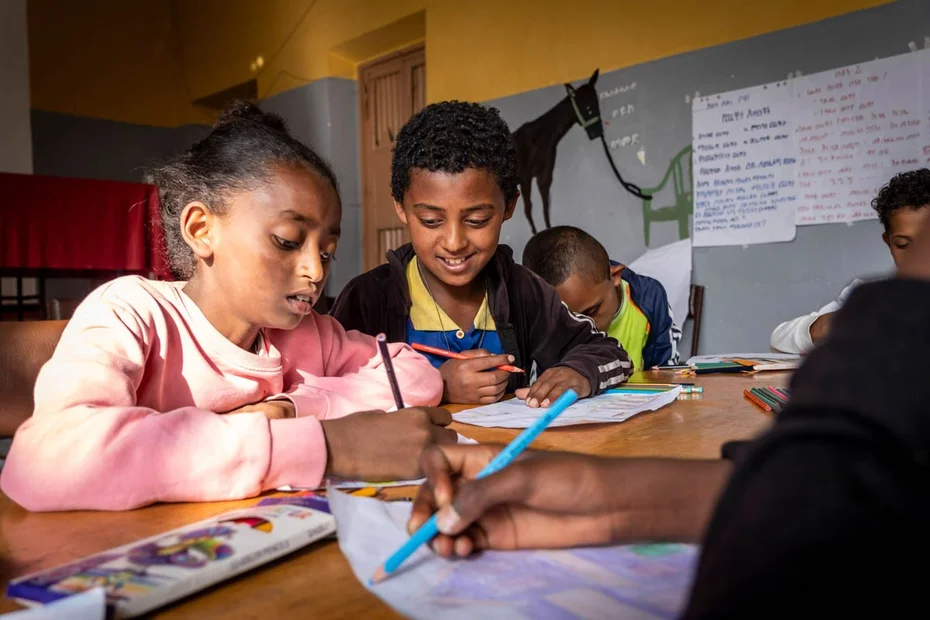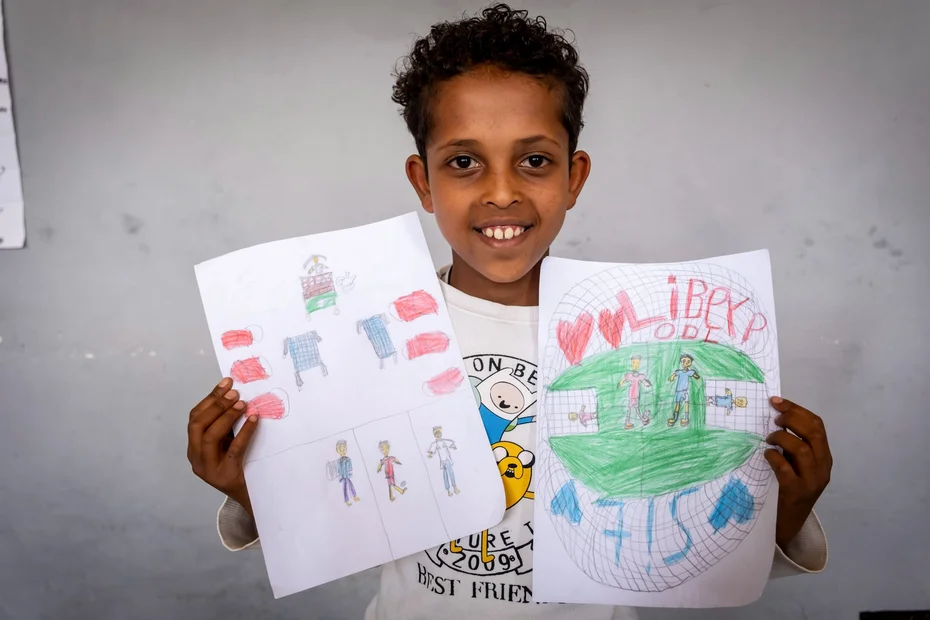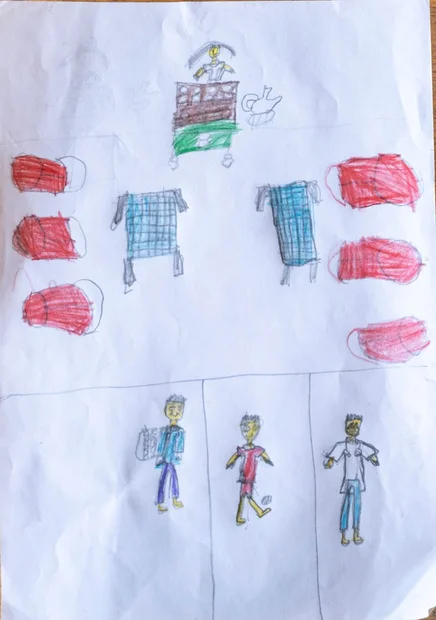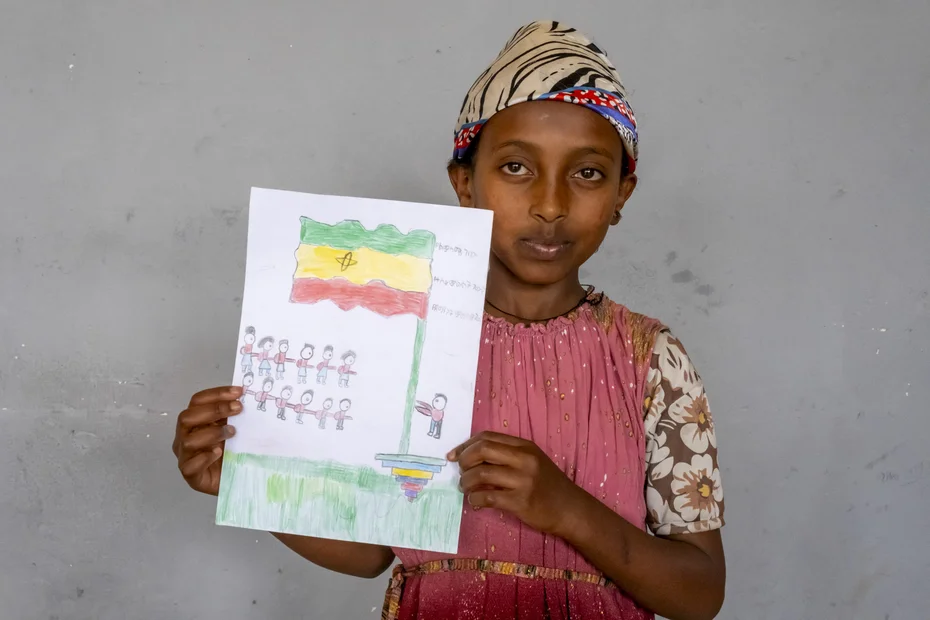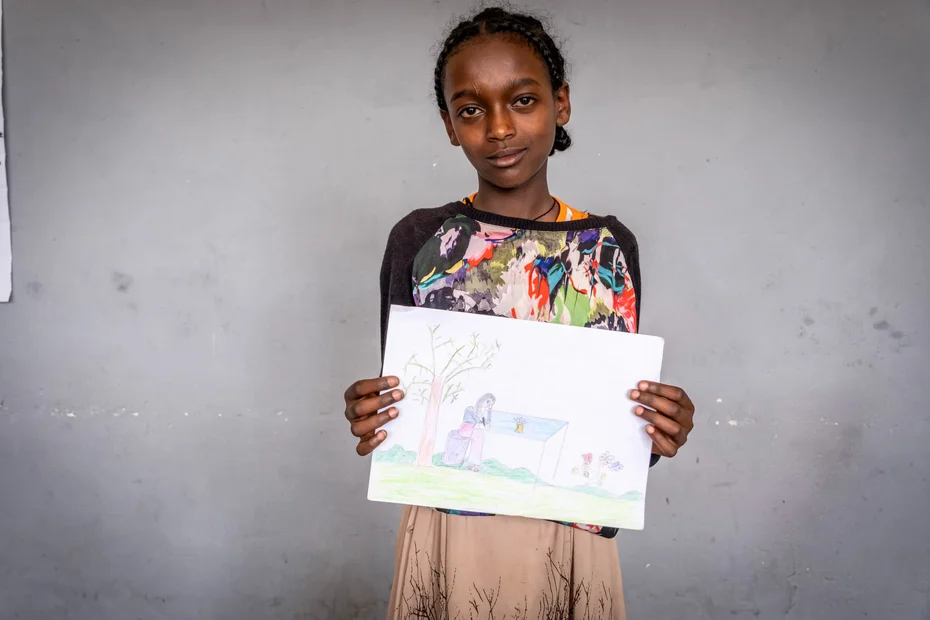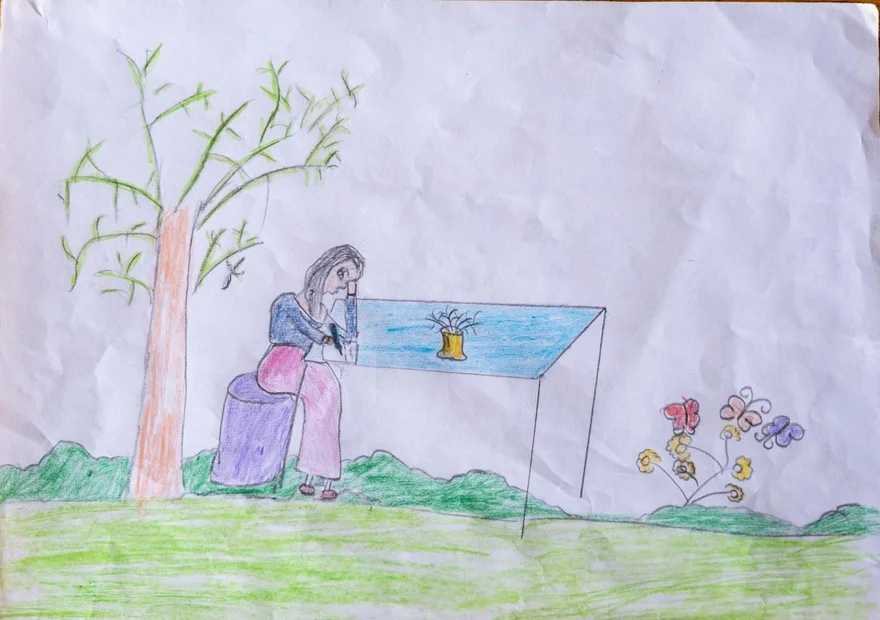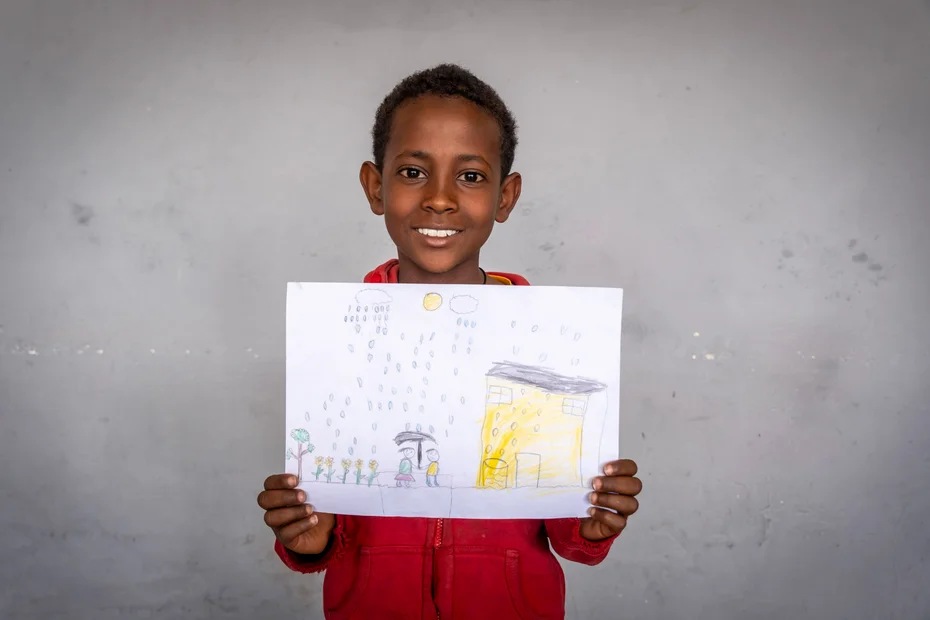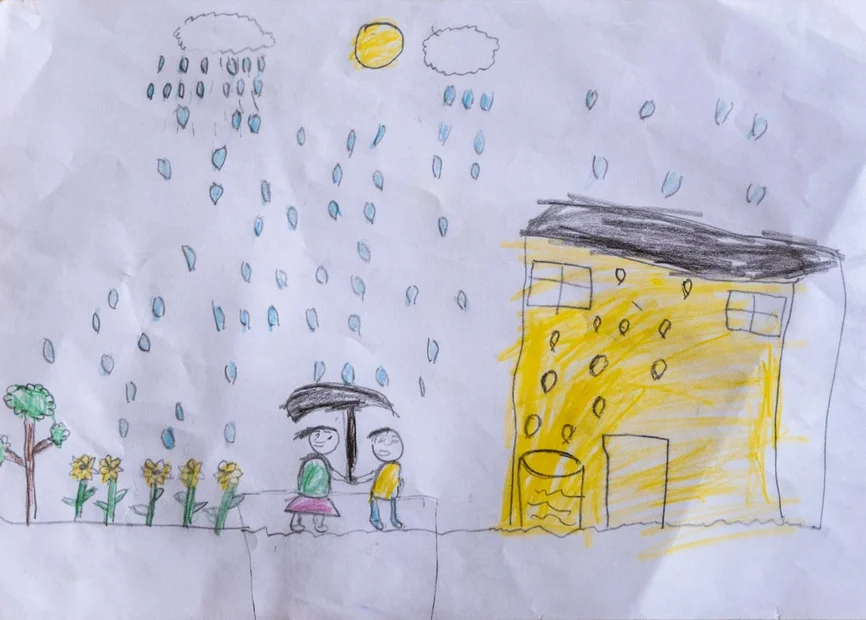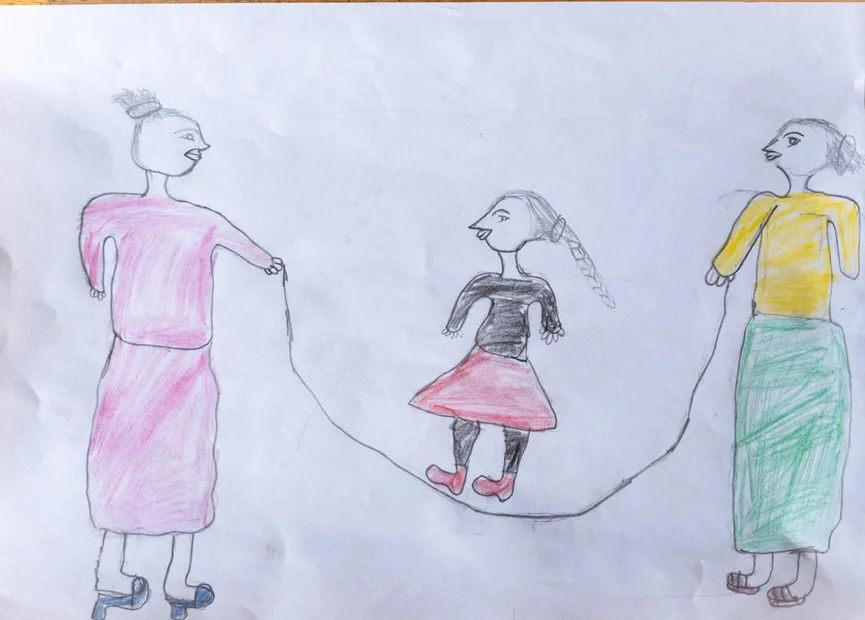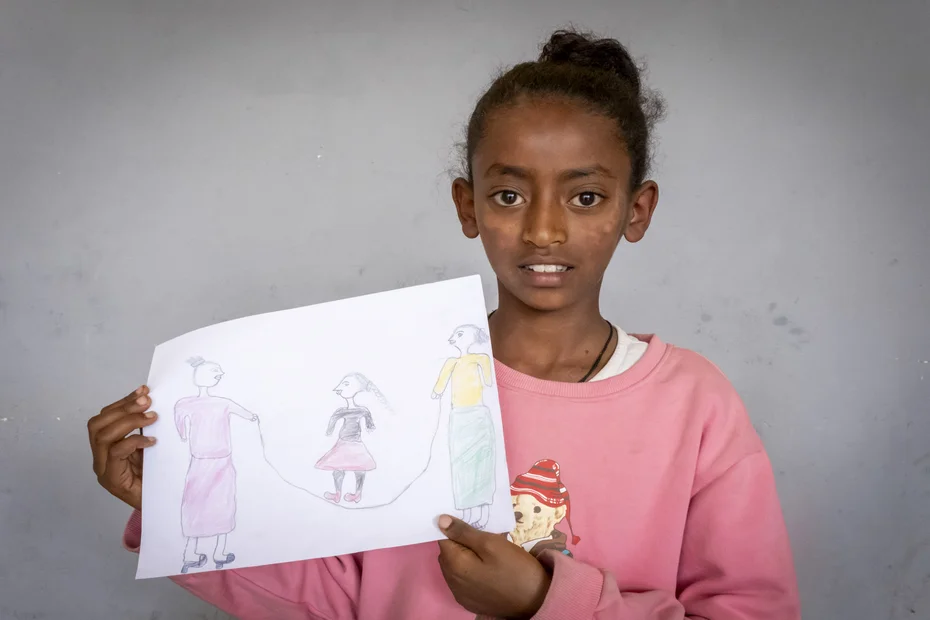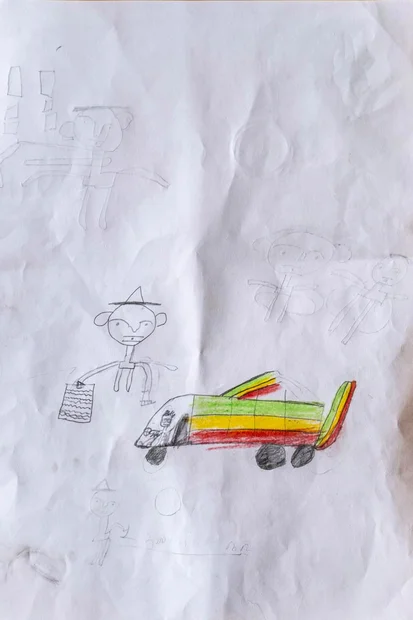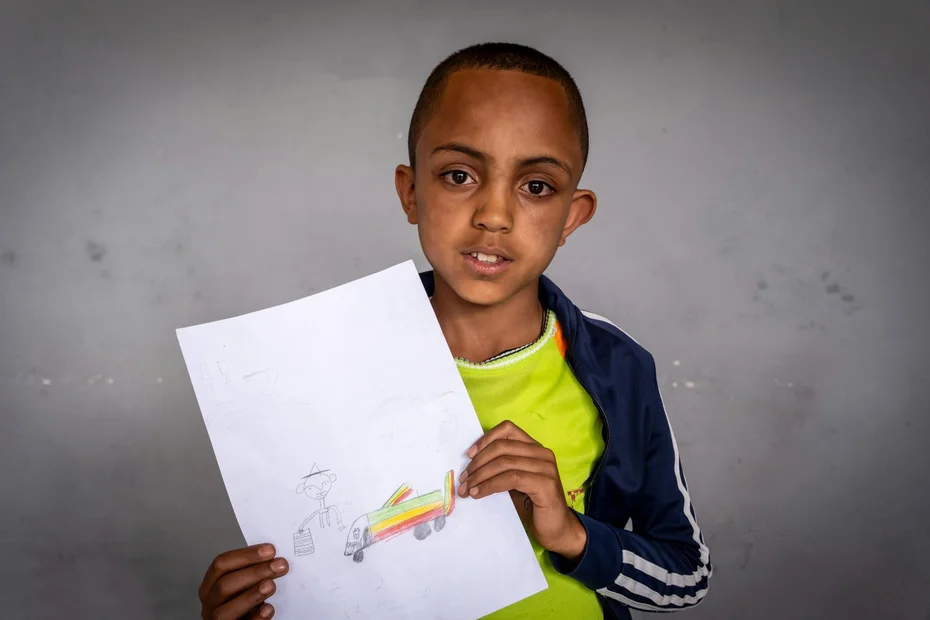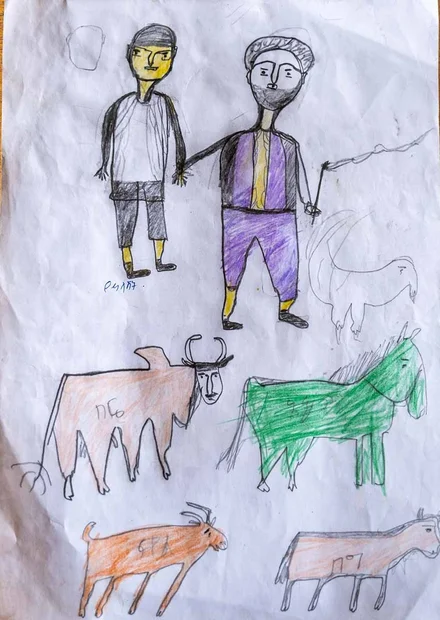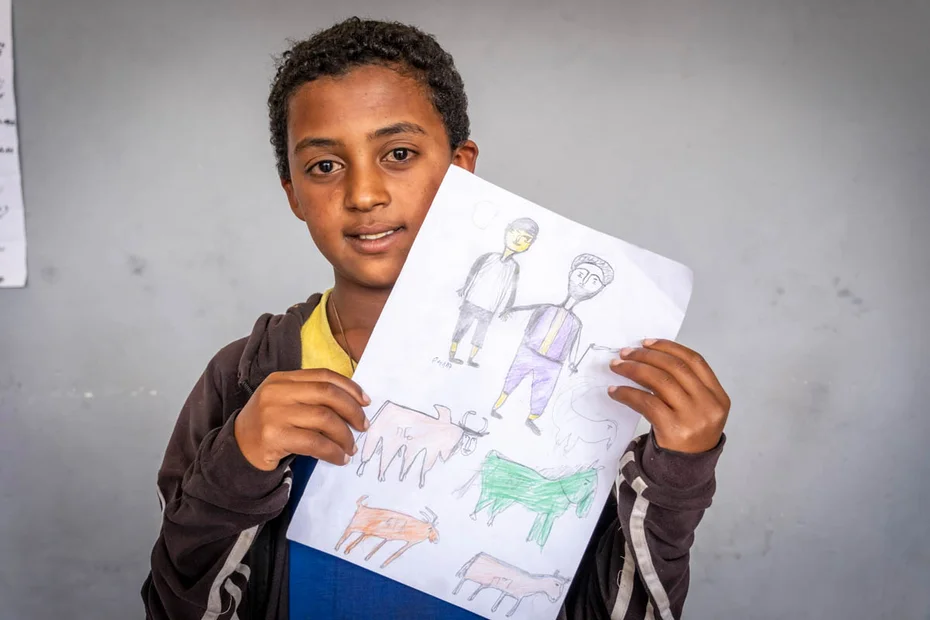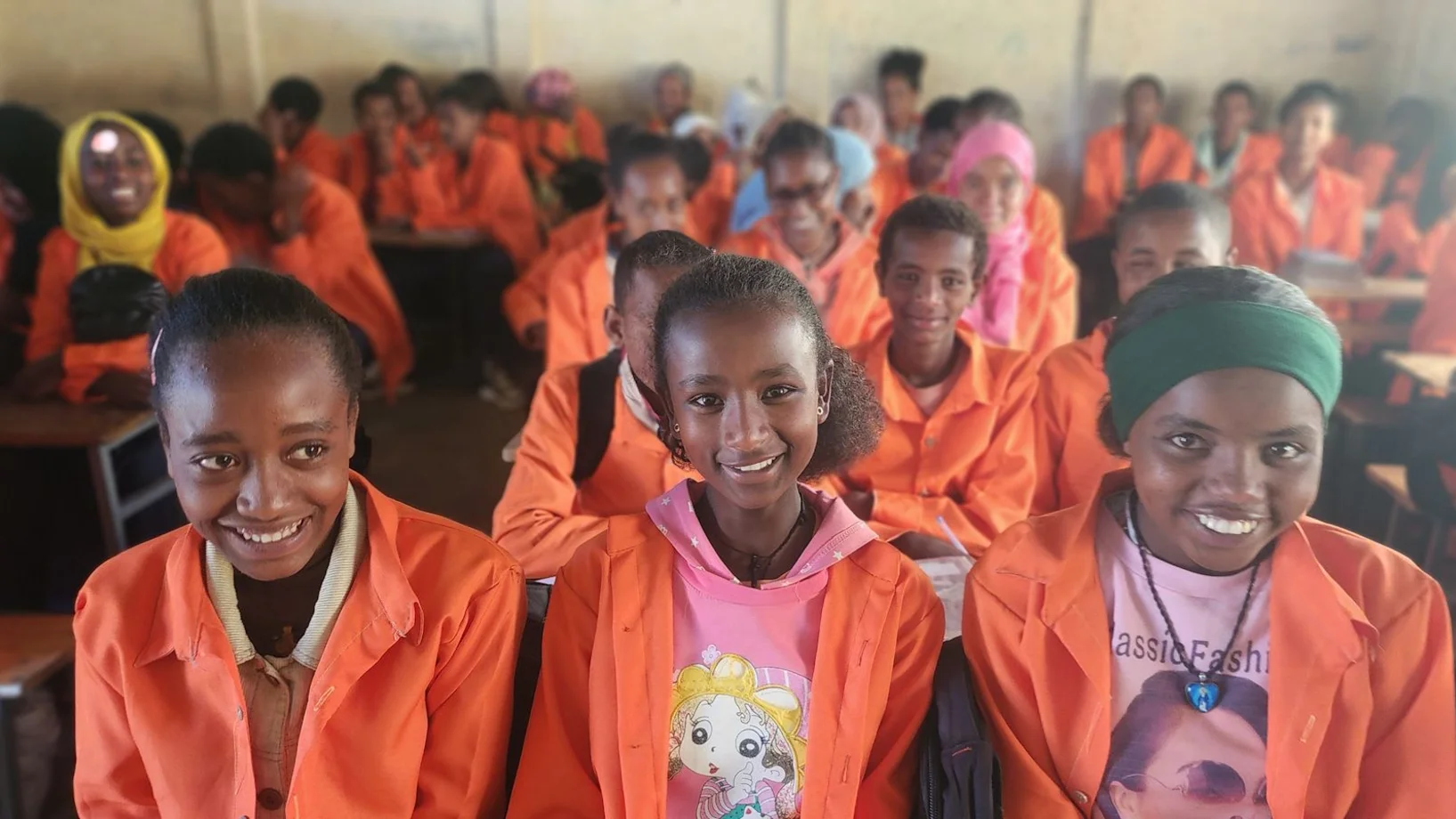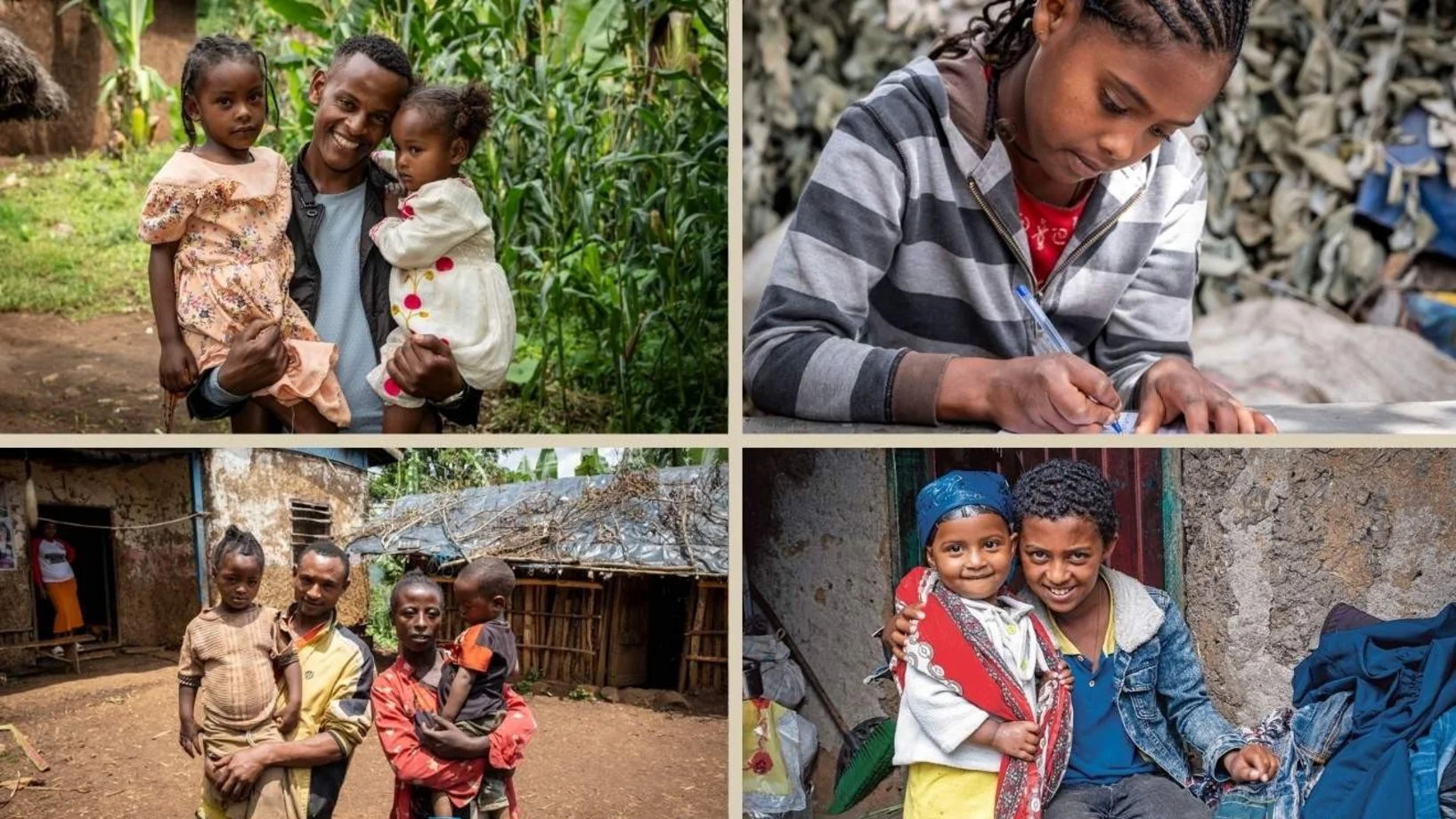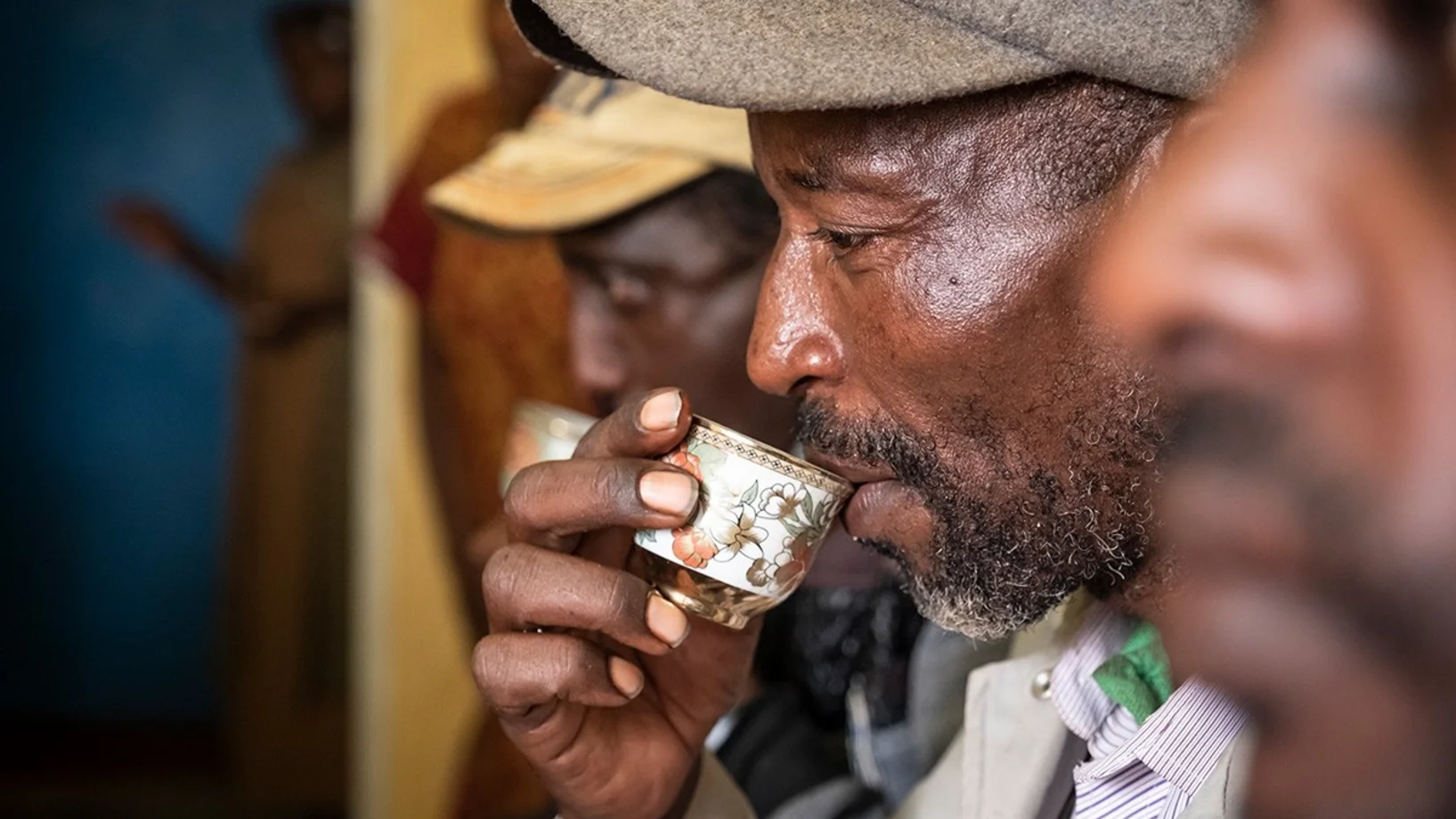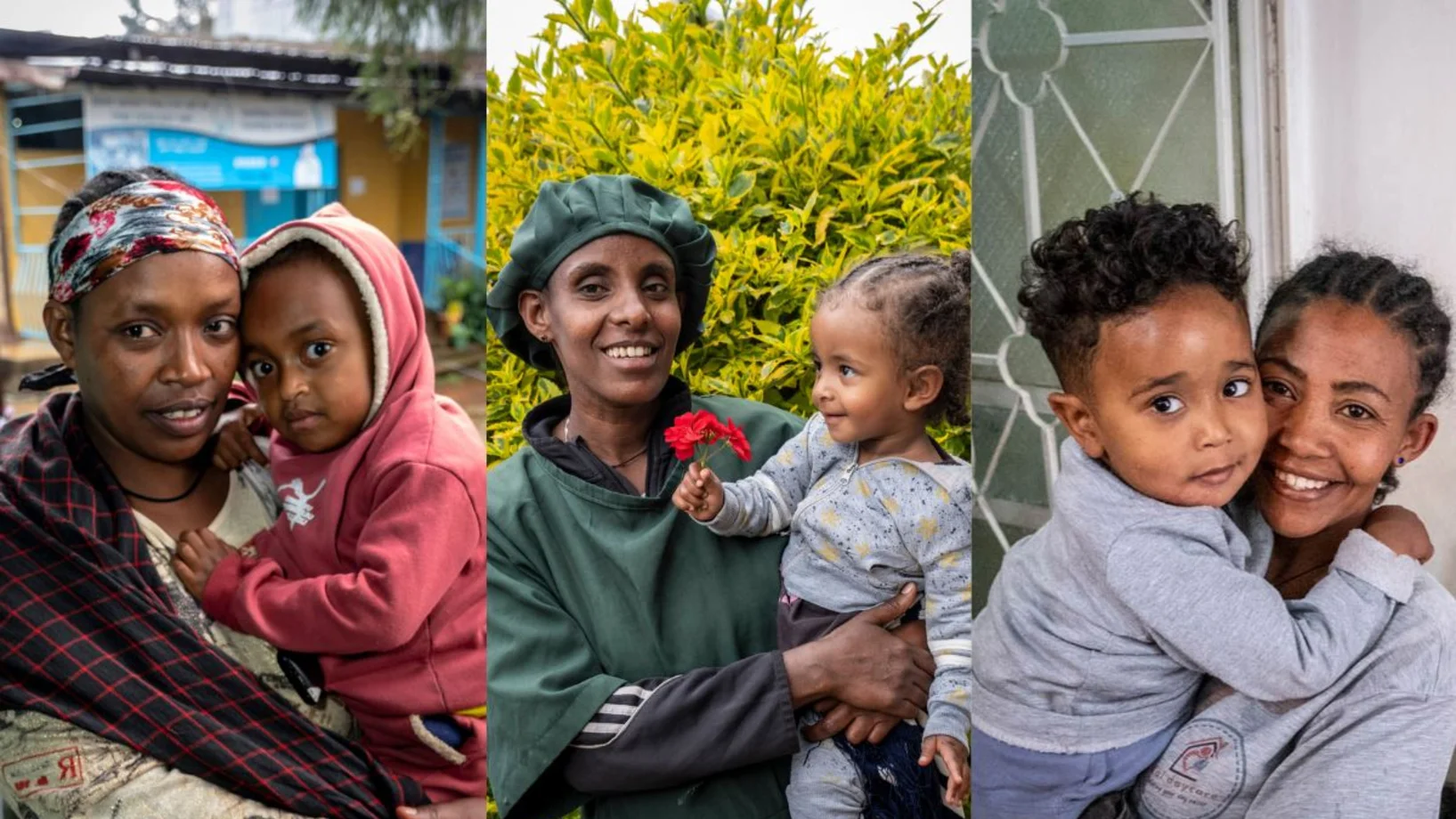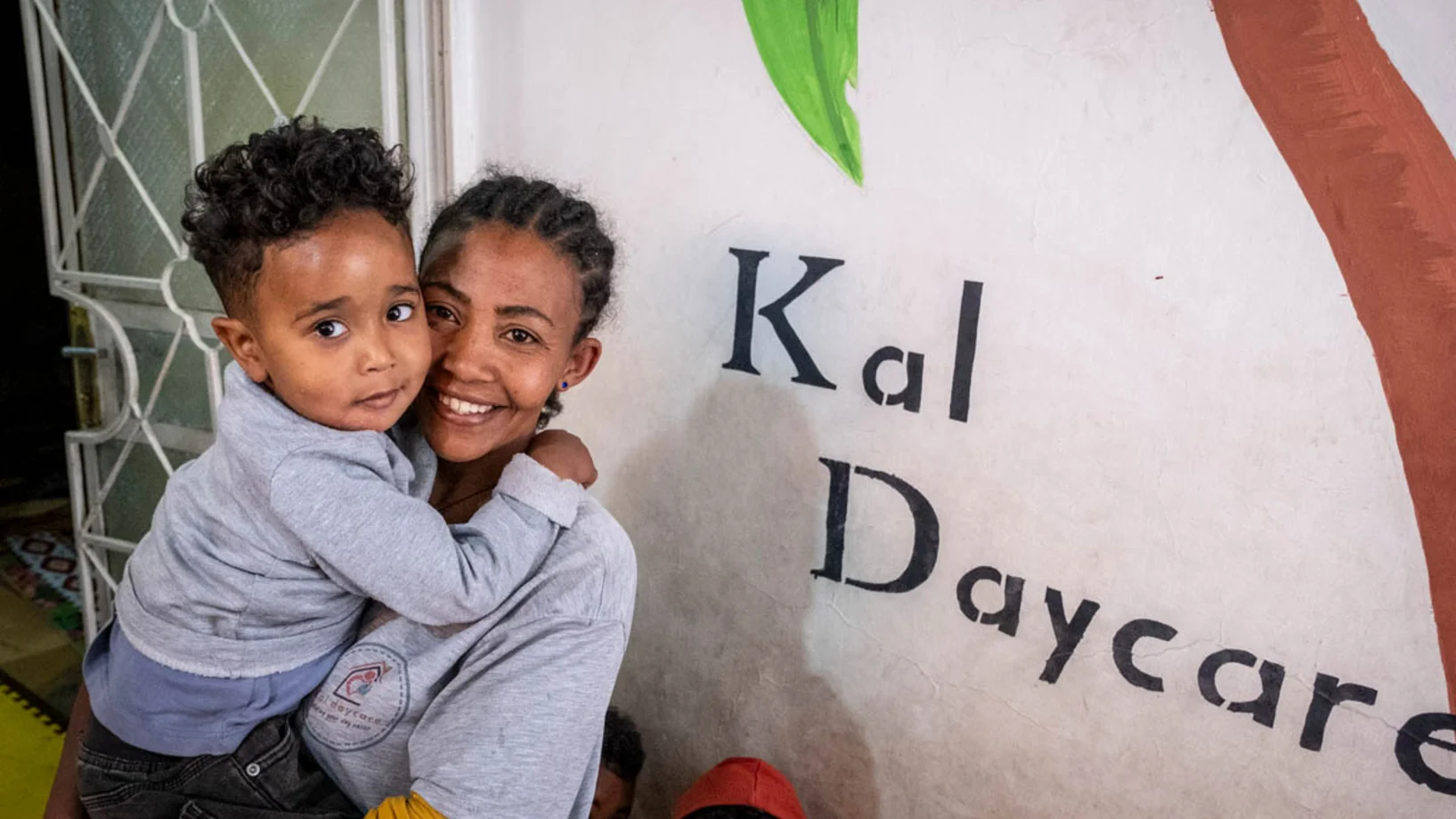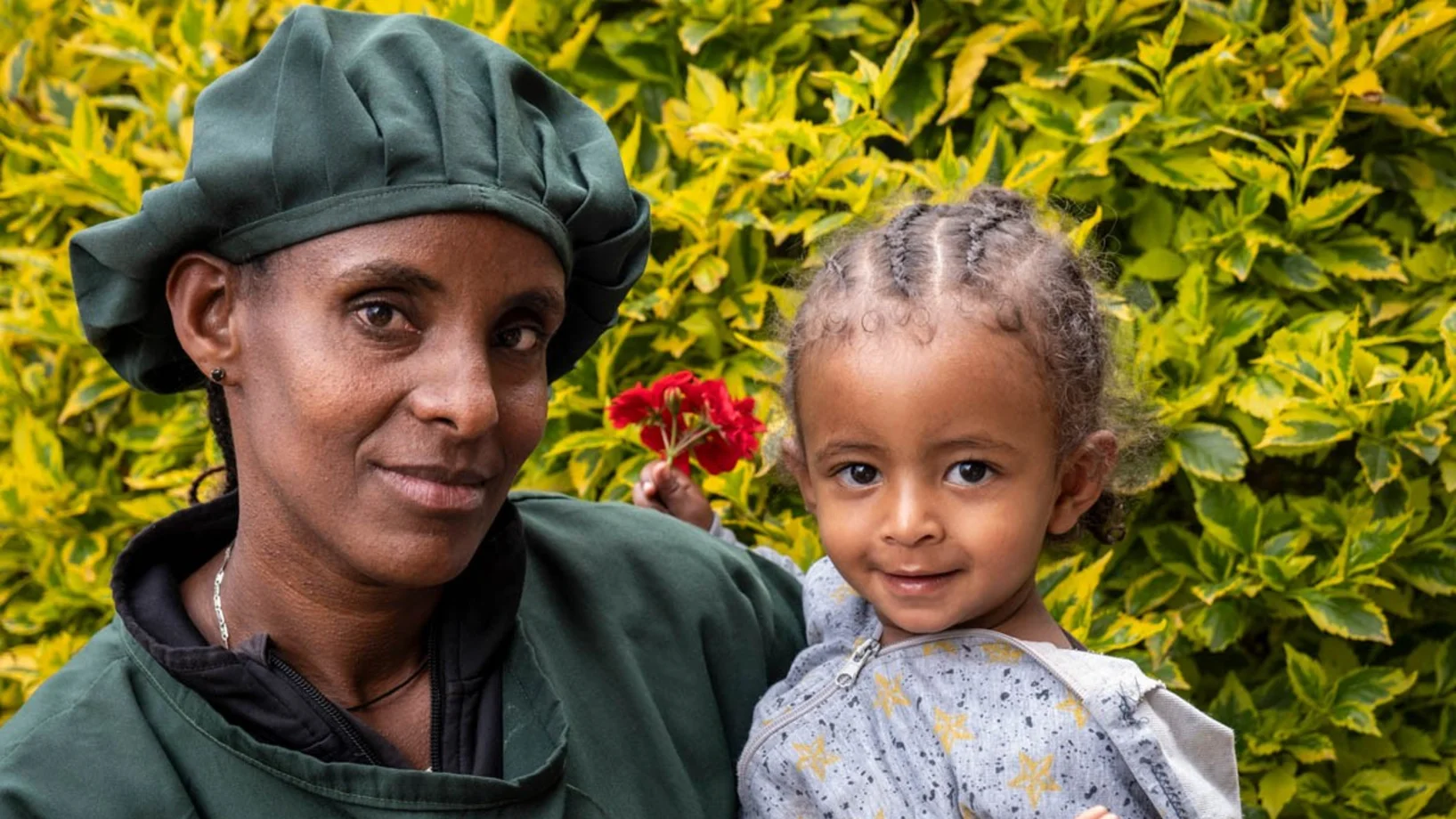"This is me. This is my life."
Since January, a new phase of our major children's project has been underway: In the city of Debre Berhan, we are supporting 1,800 children from the poorest families for three years. To kick things off, some of them painted their world. The pictures tell stories of worries, happiness, and big dreams.
"I want to become a doctor. But what I'd really like to be is a professional football player."
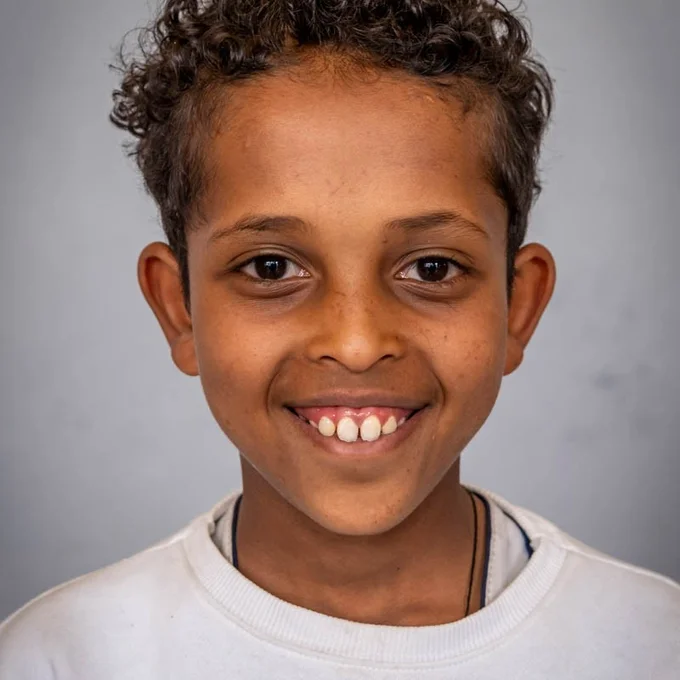
I drew a stadium: Manchester City is playing against Liverpool. I'm a Liverpool fan. My second picture shows my mom's work. There are tables and stools where the customers sit. My mom makes coffee for them. That's how she earns money for us. I painted this picture because my mom lets me go to school and fulfill my dreams: I want to be a doctor. But most of all, I want to be a professional footballer.
The mothers have no formal education. They wash clothes by hand, roast chickpeas over open fires, and toil as porters on construction sites: hard work for starvation wages. Many women therefore aspire to start their own businesses, such as a street food stall or a coffee shop. We support women with training and microloans to help them build a livelihood.
"I want to speak English as well as foreigners!"
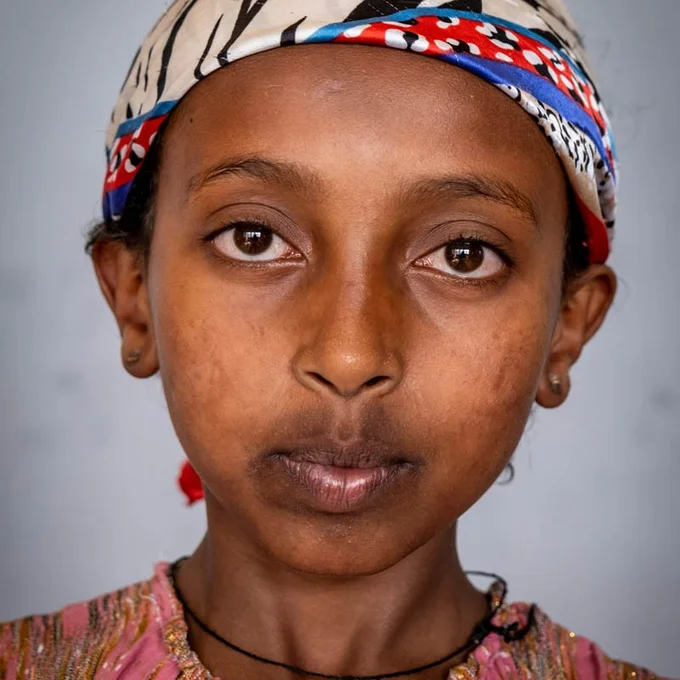
After the summer holidays, I wasn't allowed to go back to school. My father said we didn't have enough to eat. My mother said I had to look after my siblings while she worked: the twins are almost two years old. My mother cleans and does laundry for other people. My father is a day laborer. My dream is to become a doctor. I miss school – my friends and learning. I especially like English. I want to speak English as well as foreigners! My drawing shows the flag-raising ceremony at school. Every morning before classes start, the children sing the national anthem on the school grounds. I love to sing. But I've already forgotten the words.
We ensure that school dropouts can return to school. We provide families with school supplies and uniforms. We visited Hiwot in May – she has been back in school since September. In self-help groups, we prepare mothers for self-employment – with their own business, they can also pay the fees for private or public daycare.
"I want to become a writer."
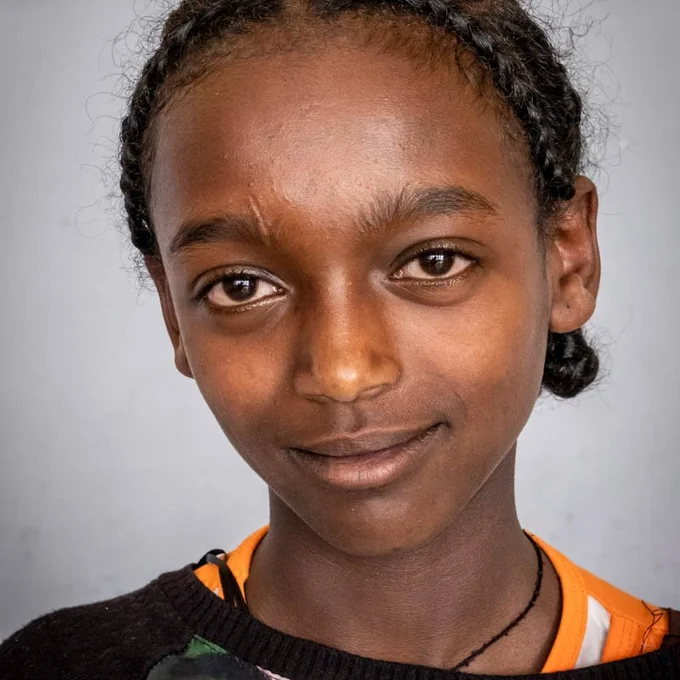
I painted myself writing. I want to be a writer. My teacher says I have talent. Sometimes I read my poems aloud, at school and in the neighborhood, and I get a lot of praise for them. I write a lot about my mom, how good she is, and how much she does for me and my brother. We don't have a father. He has a new family. I met him once on the street. He slipped me some money. Besides poems, I write stories. My favorite story is about two sisters. They are very different. One of the sisters is extremely generous and gives the neighbors a lot of food. The other sister criticizes her for it: "We hardly have anything ourselves!" In the end, they reach a compromise. I like to share. But not everything. You have to think carefully about what you can give away. It's about finding the right balance.
In poor families, many talents go undiscovered because of a lack of time and resources to nurture them. We give children notebooks and guide them in writing so they can record their thoughts and feelings. This helps them process their experiences, strengthen their self-confidence, and develop further.
"My wish is that God will get us out of this house."

Large drops are falling on our house. And on me and my little sister Dagmawit, who are standing together under an umbrella. The rain is seeping through the leaky roof. The rainy season makes me miserable. Everything gets wet, even our wool blankets when we sleep. We can't use the electrical appliances, so we can't cook or eat. My wish is that God will take us out of this house. Later, I want to become an engineer. Then I could build houses that stay dry.
The housing situation of the poorest families is inhumane. They live in cramped conditions, crammed into tiny spaces made of cardboard, wood, and rusty sheet metal. There is no sewage system, and during cloudbursts, their homes are often flooded. We are building simple mud-brick houses for 96 families.
"We were expelled. There was a war there."
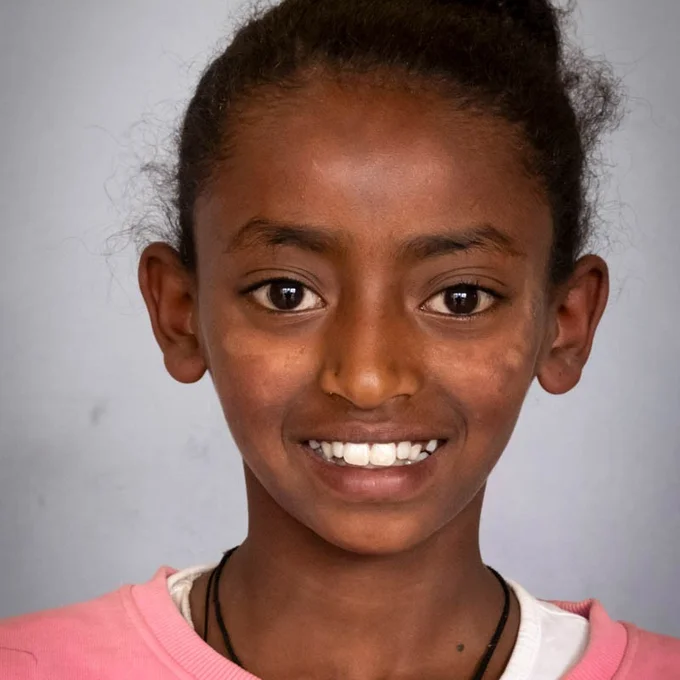
I often jump rope with my friends Elsa and Kellem. I really enjoy it. It relaxes my mind. My favorite subject at school is math. Solving problems makes me happy.
I come from Jigjiga in the Somali region. We were displaced. There was a war there. My mother told me my father was wounded. I don't know if he's still alive. So I live with my mother. She buys vegetables on credit from a wholesaler and sells them in small quantities. She does this every day.
I want to be an artist. If not, then a filmmaker. I like Ethiopian films, especially love stories where there's no arguing.
In Ethiopia, around 4.5 million people are internally displaced – they have been forced to leave their homes because conflicts between ethnic groups, political tensions, and recurring struggles over land and resources make life unsafe (UNOCHA, June 2024). Many have lost everything. They depend on special support to rebuild their lives.
"I carry my pilot's license in my hand."
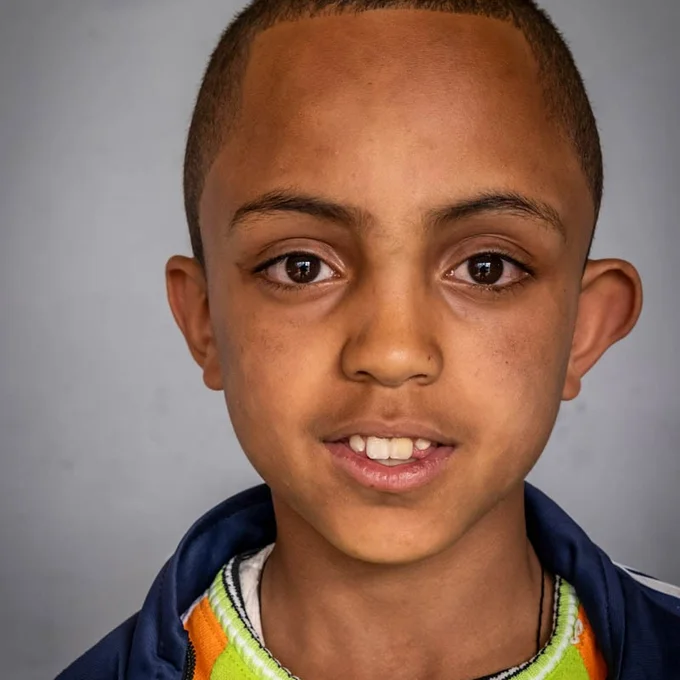
I want to become a pilot for Ethiopian Airlines. I see the planes in the sky. I like the uniforms. And I want to help my parents and my three siblings with the money I earn. In my picture, I'm walking towards the plane as a pilot. In my hand, I'm holding my pilot's license. Flying must be wonderful! But I could also become a truck driver. They earn money too.
Ethiopian Airlines is considered the most successful airline in Africa today and represents the positive momentum in Ethiopia. However, the poorest families hardly benefit from this economic growth. For their children, education remains the only way to participate in this development. That is why we are committed to ensuring that every child can go to school.
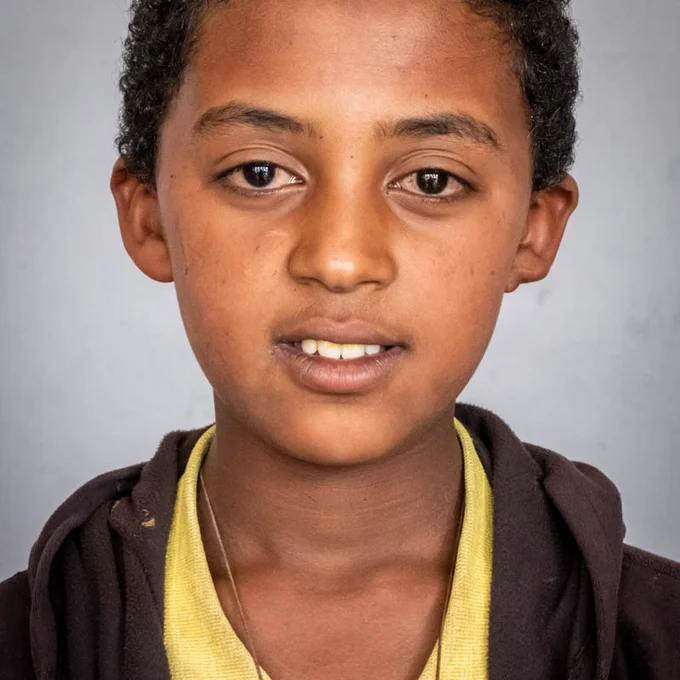
“Eager for knowledge”
The landlord came and demanded the rent. He threatened to evict us. Mom had to pay. There was no money left for school.
WARUM WIR HELFEN
Viele alleinerziehende Mütter und ihre Kinder in der Stadt Debre Berhan sind extrem arm. Es gibt kein Geld für Schulbedarf, in den engen Unterkünften herrscht Nahrungsmangel. Viele Mütter sind mutlos, am Ende ihrer Kraft. Die Verzweiflung darf nicht auf die Kinder übergehen. Seit Januar fördern wir 1800 besonders bedürftige Kinder. Unser Konzept ist die «Hilfe zur Selbstentwicklung»: Die Mütter sollen auf eigenen Beinen stehen.
WAS WIR TUN
Einige unserer Aktivitäten:
- Die Kinder bekommen Schuluniformen, Stifte und Hefte – jedes Kind hat ein Recht auf Schule!
- Die Wohnsituation ist häufig nicht menschenwürdig. Wir bauen Sozialwohnungen in traditioneller Lehmbauweise.
- Wir schulen die Mütter in Selbsthilfegruppen. Sie bekommen Mikrokredite über 80 bis 200 Franken, bauen sich damit eine Existenz auf.
- Unsere Mitarbeiterinnen sind vielfältige Stütze im Alltag. Sie beraten die Frauen fachlich bei der Gründung eines Kleingewerbes. Auch für die Kinder sind sie Vertrauensperson bei allen Nöten.
WAS WIR ERREICHEN
Unsere Erfahrungen zeigen: Nach drei Jahren können wir die allermeisten Familien in die Unabhängigkeit entlassen: Dank unserer Starthilfen können die Eltern es dann allein schaffen und den Kindern eine menschenwürdige Kindheit bieten. Daran arbeiten wir – dank der entscheidenden Unterstützung unserer Spenderinnen und Spender.
